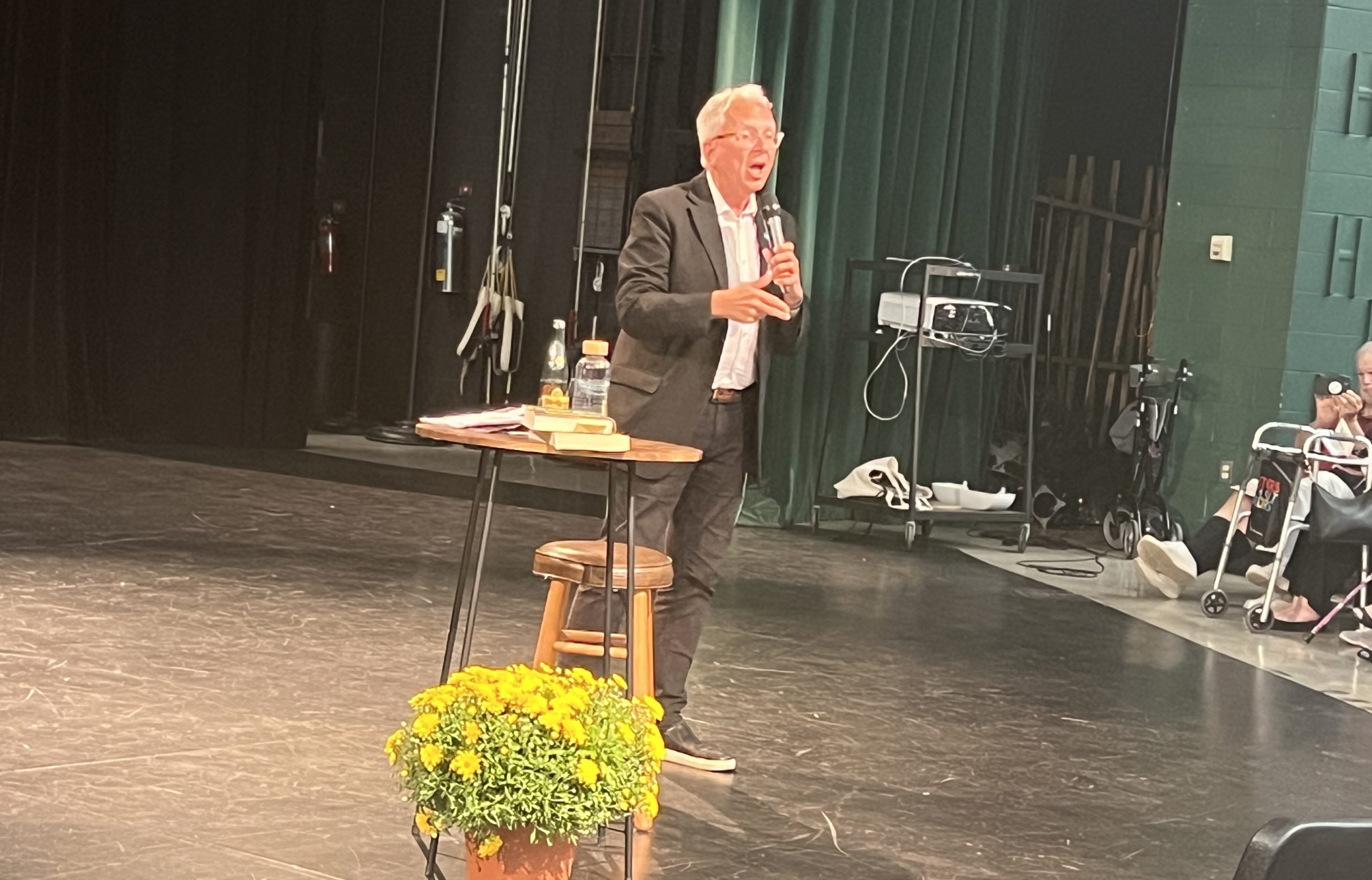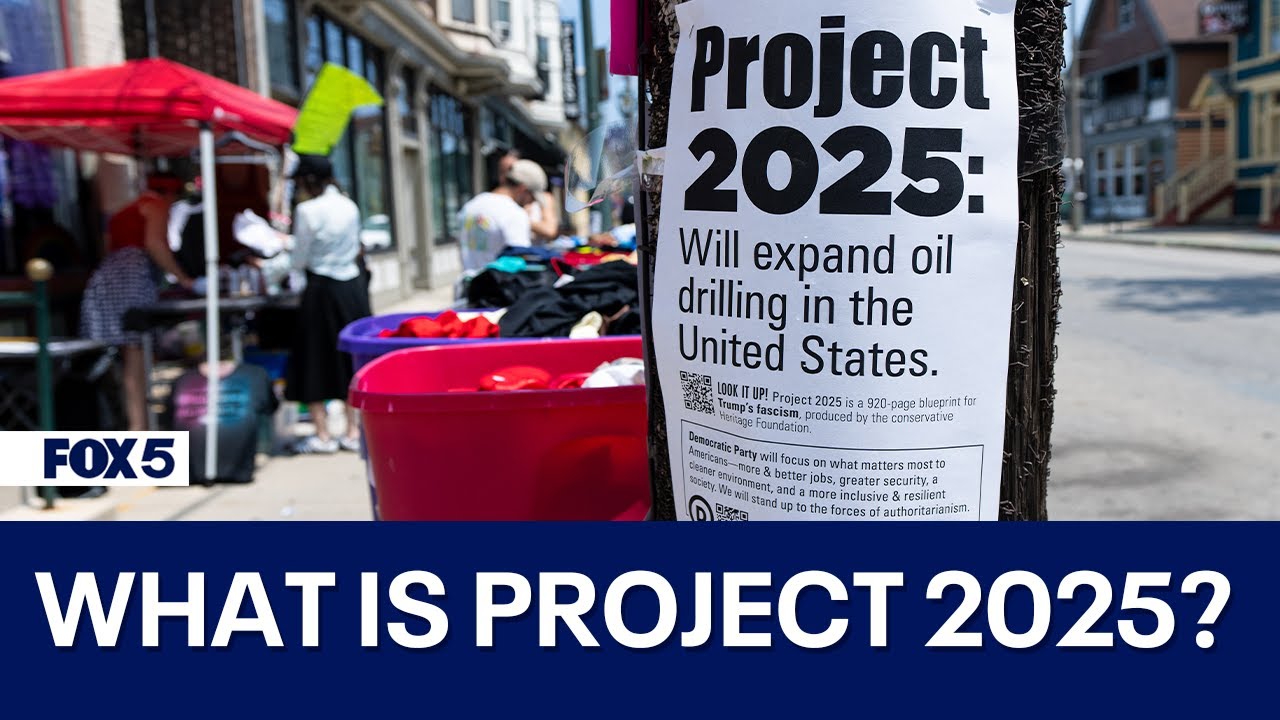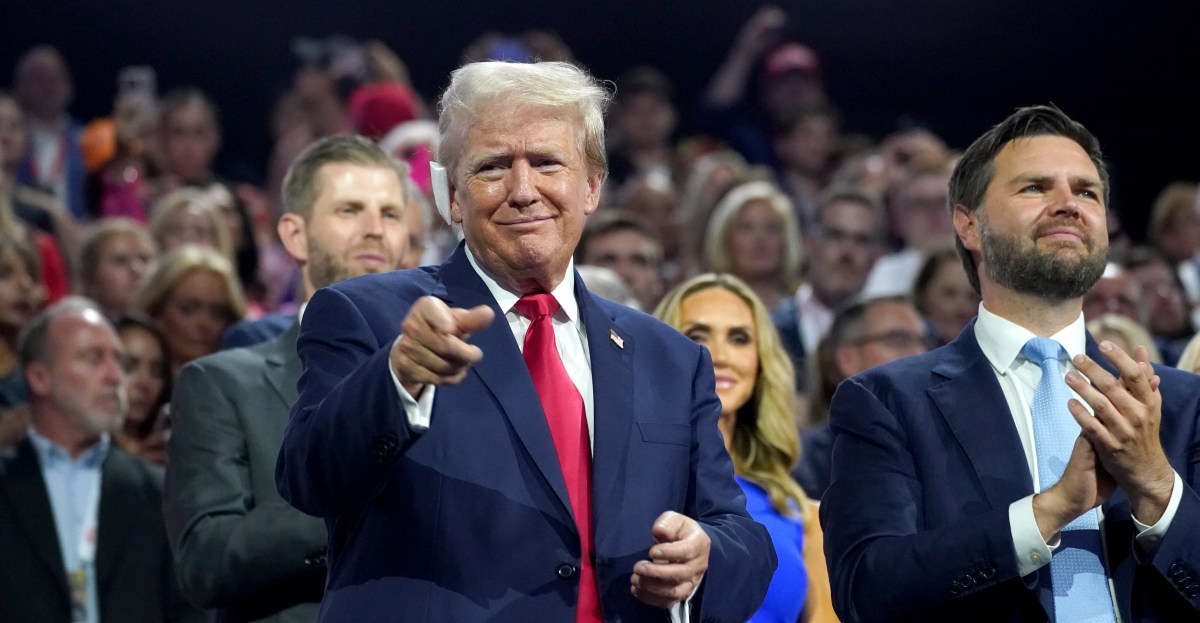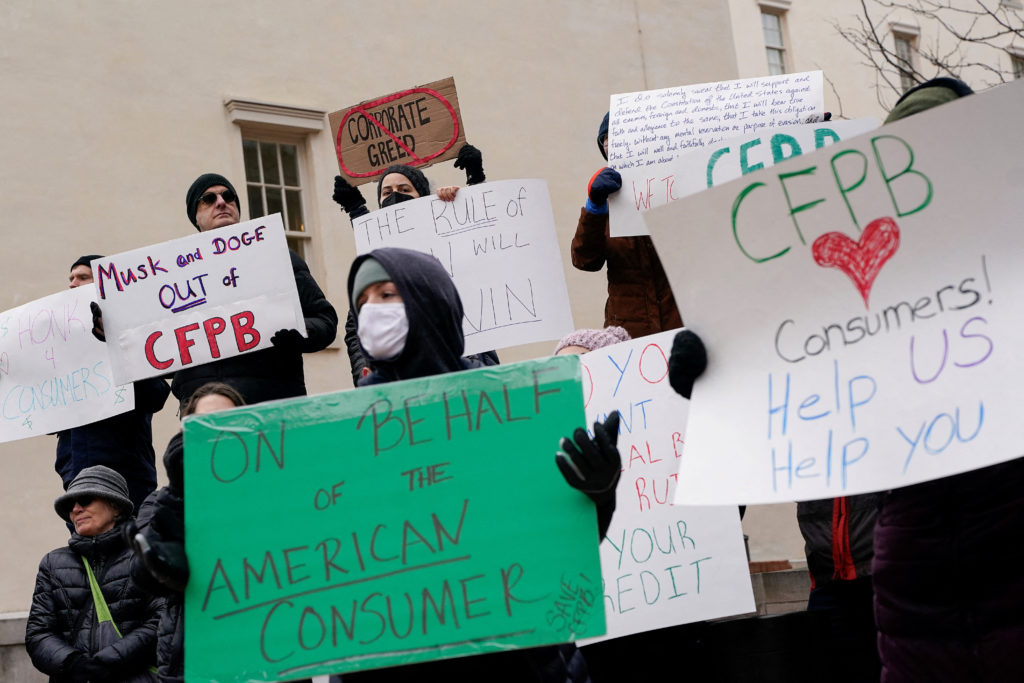Originally at racinecountyeye.com
RACINE, WI — Racine County native and national affairs correspondent for The Nation John Nichols delivered a primer Sun., Sept. 8, about the danger Project 2025 poses to American democracy.
The event took place at J.I. Case. High School and was sponsored by the Democratic Party of Racine County. Tickets were free.
Nichols spoke in front of a crowd of about 200 about the Heritage Foundation’s 900-page “mandate for leadership”and its potential to dismantle American democracy. Specifically, Nichols outlined how Project 2025 could fundamentally alter the American experiment by placing power in the hands of the few and undermining core democratic values, regardless of which party is in power.
“This is not just about Republicans or Democrats,” Nichols warned. “It’s about centralizing power in the presidency in a way that could erode the very foundations of our democracy.”
Nichols, who grew up in Union Grove, emphasized that Project 2025 is more than a bureaucratic blueprint—it’s a comprehensive effort to reshape the U.S. government in a way that threatens civil liberties, union rights, LGBTQ protections, and the balance of power.
He prefaced the heart of the discussion with historical context by noting that American democracy was imperfect from even before its beginning but was built on the premise that power should not be concentrated in a single entity, such as a king or monarch.

Nichols argued that Project 2025 proposes allowing the president to reclassify thousands of federal jobs, threatens to return the U.S. to a system where power is overly centralized, echoing the monarchy America once fought to escape.
The project’s proposed use of Schedule F—a classification system that could potentially reassign tens of thousands of civil servants—would enable future presidents to appoint loyalists to key positions.
Schedule F was introduced by former President Donald Trump, and it reclassified tens of thousands of federal employees in policy-related roles. They were stripped of civil service protections and it made them easier to hire and fire.
Though Schedule F was rescinded by President Biden, Project 2025 proposes reinstating Schedule F, which raises concerns about the potential politicization of the federal workforce.
“Project 2025 seeks to undermine the very checks and balances that have safeguarded American democracy for centuries by centralizing power in the executive branch,” Nichols said. “Reclassifying civil servants through Schedule F would allow the president to bypass traditional protections, fundamentally shifting the balance of power and opening the door to unchecked political influence within the federal government.”
Nichols warned that this shift would also strip protections from unionized workers and civil servants, leaving them vulnerable to political retribution and undermining their role in ensuring the government operates within the law.
“This isn’t about a party or an ideology,” Nichols said. “It’s about maintaining the principles of democracy—separation of powers, accountability, and the idea that no one person should hold all the authority.”
A self-described progressive, Nichols also took time to address Christian nationalism, which he believes is a key driving force behind Project 2025. As a practicing Christian, he was careful to distinguish between Christian beliefs and the political agenda being pushed by Christian nationalists.
“Christian nationalism is not about faith,” Nichols said. “It’s a political movement that seeks to impose a narrow vision of Christianity on the entire country through government action. And that’s not what America or Christianity is about.”
Nichols went on to explain how this movement, in collaboration with corporate interests, has sought to manipulate religious beliefs to rally support for regressive policies, such as the banning of abortion and the rolling back of LGBTQ rights.
“Instead of working for the common good, (Christian nationalism) seeks to strip away rights and freedoms, such as abortion rights and LGBTQ protections, by turning the government into a tool for enforcing this regressive vision of society,” he said.
Throughout his talk, Nichols explained how corporate power lies at the heart of Project 2025.
He traced the origins of the movement back to the Powell Memo of 1971, a document that laid out a long-term strategy for corporations to assert their influence over American politics, according to the Washington and Lee School of Law.
Richmond Magazine in 2014 outlined former Supreme Court Justice Lewis F. Powell’s life, including the now-famous memo, calling it “the impetus behind big business lobbying in our nation’s money-fueled politics.”

Nichols pointed out that corporate interests and far-right groups, such as the Heritage Foundation, have been working for decades to erode democratic safeguards. Their goal is to create a government more responsive to business interests than to the will of the people.
“This isn’t new,” Nichols said. “For 50 years, corporate America has been working to reshape our democracy, and Project 2025 is the latest and most dangerous step in that process.”
He explained that while Trump’s first term did bring tax cuts and deregulation for corporations, it didn’t fully satisfy these interests. Project 2025, he said, is designed to prevent a repeat of what corporate America saw as the failures of the Trump administration.
“While Trump delivered massive tax cuts and deregulation for corporations during his first term, many corporate interests felt that the administration’s disorganization and internal conflicts prevented them from achieving their full agenda,” Nichols explained. “Project 2025 is their attempt to ensure that the next (Republican) administration will not repeat these perceived failures by streamlining government restructuring and filling key positions with individuals aligned to fully implement their agenda.”
Whether Trump himself is fully aware of the project or not is irrelevant, Nichols noted. What matters is that the plan has the potential to give future Republican presidents—even those who aren’t aligned with Trump—the tools they need to carry out this agenda.
After the conclusion of Nichol’s talk, he took questions from the audience.
One man asked about how Project 2025 would affect the constitutional amendment process, specifically as it pertains to banning birthright citizenship, which is protected by the 14th Amendment.
“Personnel is policy,” Nichols said. “If you can’t amend the Constitution, can you put people in positions of power who will effectively enact the same agenda? That’s what Project 2025 is about—staffing the government with individuals who will pursue an anti-democratic agenda without the need for formal constitutional changes.”
Another man asked about Project 2025’s proposals to eliminate or gut the commerce department and the Census Bureau, asking how this would affect redistricting, voting rights, and democratic processes.
Nichols’s Response: Nichols warned that reducing or eliminating these departments would have a detrimental impact on democracy. He explained that the census provides vital information that ensures accurate representation in government and allocates resources fairly. By weakening the Census Bureau, Project 2025 could skew data in favor of certain interests, making it harder to protect civil rights and ensure fair elections.
“If you take away the Census Bureau or strip it of its functions, you weaken the very foundation of democratic representation. It’s not just about redistricting—it’s about services, resources, and knowing who lives where and what they need.”
Another attendee asked what actions could be taken beyond the election to safeguard American democracy from the corporate influence and autocratic pathways embodied by Project 2025.
Nichols’s Response: Nichols emphasized the importance of electing leaders who genuinely believe in democratic values. He urged the audience to remain politically engaged beyond the presidential election, focusing on local and state races as well, where much of the groundwork for democratic protections—or the lack thereof—happens.
“We must elect people who believe in democracy—not just for this election but in the long term. Democracy isn’t just about presidential races; it’s about electing school board members, city council members, and state legislators who will fight for the rights and values that underpin our system.”
Nichols ended his talk by urging the audience to remain alert and engaged. He emphasized that while Project 2025 poses a direct threat to democracy, its defeat is possible, but it will take all Americans to resist it.
“It doesn’t matter if you’re a progressive, a conservative, or somewhere in between,” Nichols said. “If you care about democracy, if you believe in the principles that this country was founded on, then you have to stand up against Project 2025.”
Read the Original Story








